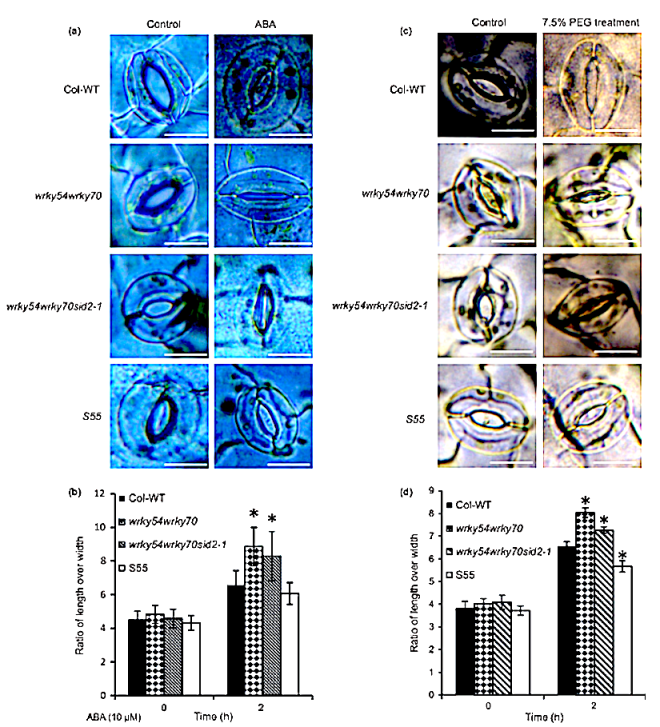
Defense-related transcription factors WRKY70 and WRKY54 modulate osmotic stress tolerance by regulating stomatal aperture in Arabidopsis.
by Li J., Besseau S., Törönen P., Sipari N., Kollist H., Holm L., Palva E. T. (2013)
Li Jing, Besseau Sebastien, Törönen Petri, Sipari Nina Hannele, Kollist Hannes, Holm Liisa, Palva E. Tapio,
Viikki Biocenter, Division of Genetics, Department of Biosciences, University of Helsinki, FI-00014, Helsinki, Finland.
===
in New Phytol 200: 457–472 – doi: 10.1111/nph.12378. Epub 2013 Jul 1. –
CrossRef PubMed PubMedCentral Google Scholar –
https://www.ncbi.nlm.nih.gov/pubmed/23815736
Abstract
WRKY transcription factors (TFs) have been mainly associated with plant defense, but recent studies have suggested additional roles in the regulation of other physiological processes. Here, we explored the possible contribution of two related group III WRKY TFs, WRKY70 and WRKY54, to osmotic stress tolerance.
These TFs are positive regulators of plant defense, and co-operate as negative regulators of salicylic acid (SA) biosynthesis and senescence. We employed single and double mutants of wrky54 and wrky70, as well as a WRKY70 overexpressor line, to explore the role of these TFs in osmotic stress (polyethylene glycol) responses. Their effect on gene expression was characterized by microarrays and verified by quantitative PCR.
Stomatal phenotypes were assessed by water retention and stomatal conductance measurements. The wrky54wrky70 double mutants exhibited clearly enhanced tolerance to osmotic stress. However, gene expression analysis showed reduced induction of osmotic stress-responsive genes in addition to reduced accumulation of the osmoprotectant proline.
By contrast, the enhanced tolerance was correlated with improved water retention and enhanced stomatal closure.
These findings demonstrate that WRKY70 and WRKY54 co-operate as negative regulators of stomatal closure and, consequently, osmotic stress tolerance in Arabidopsis, suggesting that they have an important role, not only in plant defense, but also in abiotic stress signaling.